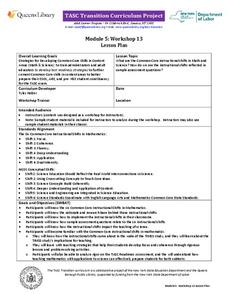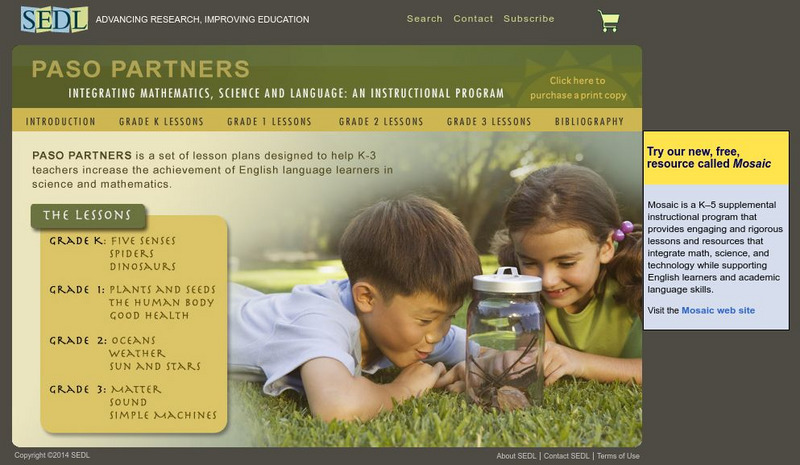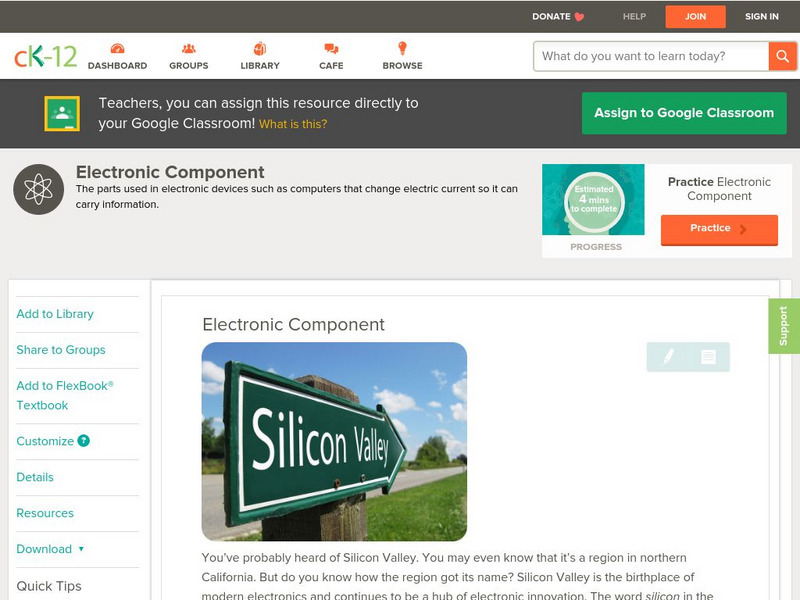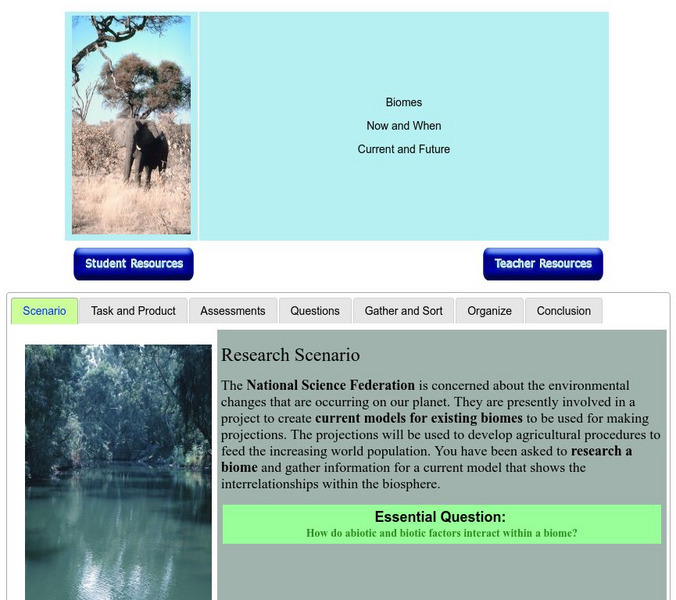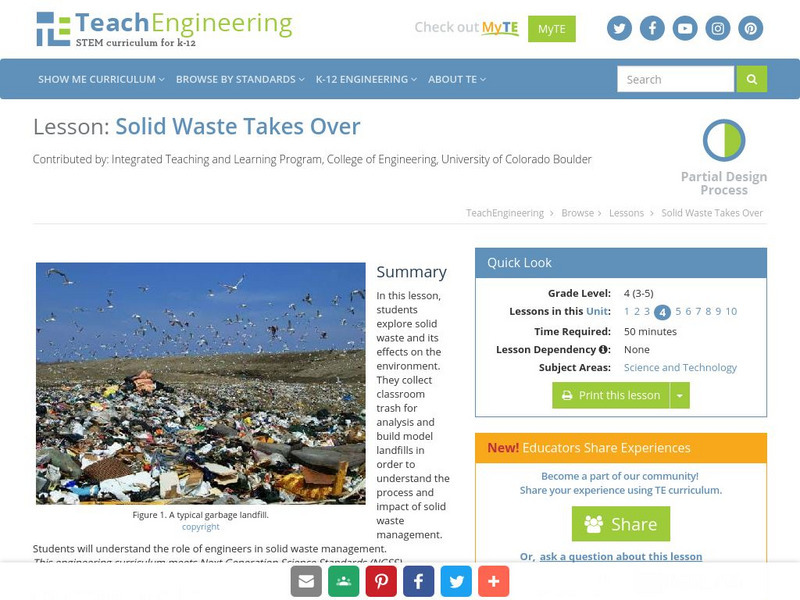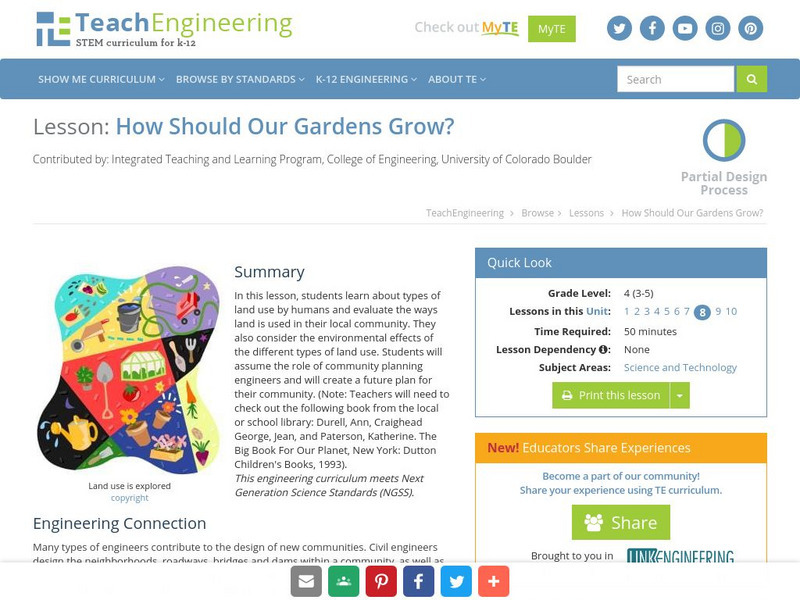New York State Education Department
TASC Transition Curriculum: Workshop 13
The six instructional shifts in this workshop definitely move math and science teachers' understanding of instruction. The workshop, 13th out of a series of 15, asks participants to examine sample tests and to look at how the six...
NBC
Nbc Learn: Science of Nhl Hockey
Included here are 10 videos and lesson plans regarding the science and math behind professional hockey. Simply click on the video and the instructional activity/s are integrated.
NBC
Nbc Learn: Science of Nfl Football
Included here are 10 videos and lesson plans that unravel the science behind NFL professional football. Simply click on the video and the lesson/s are integrated.
TeachEngineering
Teach Engineering: Fun Look at Material Science
Students are introduced to the multidisciplinary field of material science. Through a class demo and PowerPoint presentation, they learn the basic classes of materials (metals, ceramics, polymers, composites) and how they differ from one...
Sophia Learning
Sophia: Physics: Fluid Force Integral Calculation
Created to teach students of the 21st century, SOPHIA is bringing the 8 parts of speech straight to your fingertips. Become the commander of your own learning experiences as you take part in this interactive lesson,
SEDL
Sedl:paso Partners Integrating Math, Science & Language
Contains a plethora of elementary bilingual education lessons and activities! Includes a curriculum plan, instructional strategies, activities, suggested teacher and student materials, and more. Each unit includes a Spanish translation!
TeachEngineering
Teach Engineering: Life Science
This unit covers the processes of photosynthesis, extinction, biomimicry and bioremediation. In the first lesson on photosynthesis, students learn how engineers use the natural process of photosynthesis as an exemplary model of a complex...
ReadWriteThink
Read Write Think: Digging Up Details on Worms: Using Science in an Inquiry Study
A lesson plan based on a study unit of earthworms, using the inquiry model to integrate scientific processes with literacy practices. Instruction plans, related resources, and standards are included.
CK-12 Foundation
Ck 12: Physical Science: Electronic Component
[Free Registration/Login may be required to access all resource tools.] Overview of electronic components: semiconductors, diodes, transistors, and integrated circuits.
CK-12 Foundation
Ck 12: Earth Science: Scientific Community
[Free Registration/Login may be required to access all resource tools.] How the scientific community shares results and monitors scientific integrity.
Science Education Resource Center at Carleton College
Serc: Cube Puzzle and Toilet Paper Roll Model in Teaching the Nature of Science
This lesson incorporates inexpensive materials such as carton boxes, toilet paper roll tube, strings and toothpicks. It engages students to conduct pattern observation, prediction, testing and ends up with a model construction. It also...
Other
Kindergarten lessons.com: Graphing Activities
Graphing activities for preschool and kindergarten include collecting data and organizing it in a variety of ways. There are lots of fun things to do in this area of math and the activities integrate well with science and literacy...
Other
Laura Candler: Green Court Claims: Are Green Companies Really Green? [Pdf]
In this lesson, students investigate claims that companies make about their products and business practices they use to imply that they are environmentally friendly. Students work in groups to research the claim they chose and then...
TeachEngineering
Teach Engineering: Program Analysis Using App Inventor
In computer science, program analysis is used to determine the behavior of computer programs. Flow charts are an important tool for understanding how programs work by tracing control flow. Control flow is a graphical representation of...
TeachEngineering
Teach Engineering: Antimatter Matters
Antimatter, the charge reversed equivalent of matter, has captured the imaginations of science fiction fans for years as a perfectly efficient form of energy. While normal matter consists of atoms with negatively charged electrons...
TeachEngineering
Teach Engineering: Curiosity Killed the App
Students gain experience with the software/system design process, closely related to the engineering design process, to solve a problem. First, they learn about the Mars Curiosity rover and its mission, including the difficulties that...
Other
Baltimore County Public Schools: Biomes: Now and When (Online Research Model)
Biomes lesson designed to answer the question, how do abiotic and biotic factors interact within a biome? integrates biological concepts with literacy knowledge and skills. Includes directed questions, assessment guides, project...
Other
Baltimore Co. Public Schools: Chesapeake Bay Food Webs (Online Research Model)
Food webs lesson, which focuses on Chesapeake Bay habitats, integrates biological concepts with literacy knowledge and skills. Lesson directs students to answer the question, how does a human-caused stress placed on the environment...
TeachEngineering
Teach Engineering: Survive That Tsunami!
Students use a table-top-sized tsunami generator to observe the formation and devastation of a tsunami. They see how a tsunami moves across the ocean and what happens when it reaches the continental shelf. Students make villages of model...
TeachEngineering
Teach Engineering: The Science of Swinging
Students learn what a pendulum is and how it works in the context of amusement park rides. While exploring the physics of pendulums, they are also introduced to Newton's first law of motion - about continuous motion and inertia.
TeachEngineering
Teach Engineering: 3 Rc (Reduce, Reuse, Recycle and Compost)
In this lesson, students expand their understanding of solid waste management to include the idea of 3RC (reduce, reuse, recycle and compost). They will look at the effects of packaging decisions (reducing) and learn about engineering...
TeachEngineering
Teach Engineering: Solid Waste Takes Over
In this activity, young scholars explore solid waste and its effects on the environment. They will collect classroom trash for analysis and build model landfills in order to understand the process and impact of solid waste management....
TeachEngineering
Teach Engineering: How Should Our Gardens Grow?
In this lesson, students will learn about types of land use by humans and evaluate the ways land is used in their local community. They will also consider the environmental effects of the different types of land use. Students will assume...
TeachEngineering
Teach Engineering: Checking the Surf
This lesson introduces the concepts of wavelength and amplitude in transverse waves. In the associated activity, students will use ropes and their bodies to investigate different wavelengths and amplitudes.
